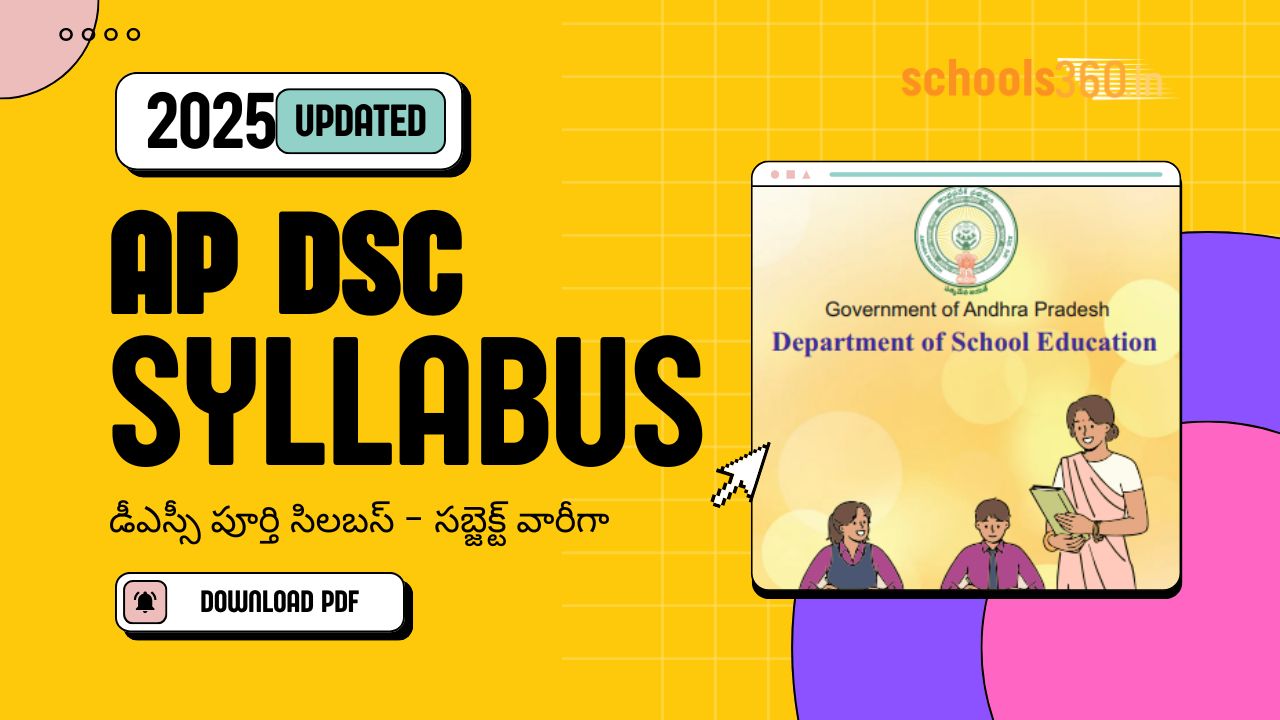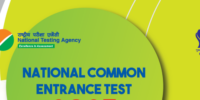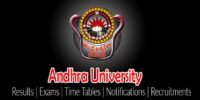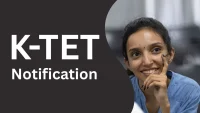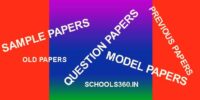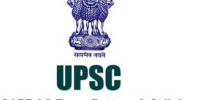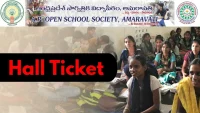AP DSC Syllabus 2025, AP Mega DSC Syllabus in Telugu & English: The AP DSC Updated Syllabus is Available on this page. Candidates were already aware that the notification for AP Mega DSC 2025 had been released. Candidates preparing for the AP DSC exam can check the Syllabus in both Telugu and English. Here, we are providing the Complete AP DSC revised syllabus in PDF format for candidates to achieve a good score in their examination.
AP Mega DSC Selection Process
The Recruitment shall be through a selection process consisting of a Computer-based Written Test (CBT) and other criteria stipulated by the Government. Recruitment will be purely based on merit cum roster system as per the existing provisions being adopted by the Government of Andhra Pradesh.
| Post Type | Total Marks | Written Test (TRT) | APTET/CTET (20%) Weightage |
| School Education Posts | |||
| School Assistants: Languages and Non-Languages | 100 | 80 | 20 |
| Secondary Grade Teachers (SGTs) | 100 | 80 | 20 |
| School Assistant (PE) and Physical Education (PET) | 100 | 100 | NA |
| Residential Welfare Posts | |||
| Principals | 100 | 100 | NA |
| Post Graduate Teachers (PGTs) | 100 | 100 | NA |
| Trained Graduate Teachers (TGTs) | 100 | 80 | 20 |
| Physical Director (PD) | 100 | 100 | NA |
- Paper–I English Language Proficiency Test is only qualifying Examination and marks scored are not counted for preparation of merit list.
- The minimum qualifying marks in English Language Proficiency Test OC/BC/EWS–60 Marks and SC/ ST/ PH/ Ex-serviceman–50Marks.
- If the candidates of Principal/PGT/TGT have not secured qualifying marks in Paper-1 (English Language Proficiency Test) Paper-2 will not be evaluated and shall not be considered for selection.
AP DSC 2025 Structure of the Examination:
The syllabus details, allocation of marks to different subjects, content, and structure of the Teacher Recruitment Test (TRT) shall be notified in the Information Bulletin to be issued by the Commissioner of School Education through the official website designated for this purpose.
The Structure and Content proposed for TRT for School Assistants, SA(PE) and SGTs are as follows.
The Computer-Based Test shall be conducted in all the districts. A candidate shall appear for the Written Test in the district where he/she seeks recruitment (or) in neighboring districts of neighboring states.
AP DSC SA Exam Pattern for School Assistants (Non-Languages & Languages)
Duration of examination: 2 Hours 30 Minutes
| Part-I | General Knowledge and Current Affairs | 20 MCQs | 10 Marks |
| Part-II | Perspective in Education | 10 MCQs | 05 Marks |
| Part-III | Classroom Implications of Educational Psychology | 10 MCQs | 05 Marks |
| Part-IV | Content of the concerned subject | 80 MCQs | 40 Marks |
| Methodology of the concerned subject | 40 MCQs | 20 Marks | |
| TOTAL | 160 MCQs | 80 Marks | |
Parts III and IV vary as per the Subject opted for in the Exam.
Check Detailed AP DSC SA Syllabus – Click Here
AP DSC SGT Exam Pattern 2025 (Secondary Grade Teacher)
Duration of examination: 2 Hours 30 Minutes
| Part-I | General Knowledge and Current Affairs | 16 MCQs | 8 Marks |
| Part-II | Perspectives in Education | 8 MCQs | 4 Marks |
| Part-III | Education Psychology | 16 MCQs | 8 Marks |
| Part-IV | Language I (Optional) Telugu/Urdu/Hindi/Tamil/Oriya/ Kannada/ Sanskrit | ||
| Content | 16 MCQs | 8 Marks | |
| Methodology | 8 MCQs | 4 Marks | |
| Part-V | Language-II (English) | ||
| Content | 16 MCQs | 8 Marks | |
| Methodology | 8 MCQs | 4 Marks | |
| Part-VI | Mathematics | ||
| Content | 16 MCQs | 8 Marks | |
| Methodology | 8 MCQs | 4 Marks | |
| Part-VII | Science | ||
| Content | 16 MCQs | 8 Marks | |
| Methodology | 8 MCQs | 4 Marks | |
| Part-VIII | Social Studies | ||
| Content | 16 MCQs | 8 Marks | |
| Methodology | 8 MCQs | 4 Marks | |
| TOTAL | 160 MCQs | 80 Marks | |
AP DSC SA (PE) Exam Pattern – School Assistant (PE) and Physical Education (PET)
Duration of examination: 3 Hours
| Part-I | General Knowledge and Current Affairs | 10 MCQs | 05 Marks |
| Part-II | Perspective in Education | 10 MCQs | 05 Marks |
| Part-III | Physical Education Pedagogy | 40 MCQs | 20 Marks |
| Part-IV | Physical Education Content | 140 MCQs | 70 Marks |
| Organization and Administration of Physical Education | |||
| History of Physical Education | |||
| Basic anatomy, Physiology, Kinesiology and Biomechanics | |||
| Health Education and Sports Injuries | |||
| Yoga in Physical Education | |||
| Recreation and leisure management | |||
| Sports training | |||
| Concepts of wellness management | |||
| Sports management | |||
| Research and Statistics in Physical Education | |||
| Officiating and coaching | |||
| Total | 200 MCQs | 100 Marks | |
AP DSC Exam Pattern – Principals
Paper-I (Morning Session) Duration:1 Hour 30 Minutes | Single Paper | English Language Proficiency Test (up to Intermediate level) | 100 MCQs | 100 Marks |
Paper II (Afternoon Session) Duration: 3 Hours | Part-I | General Knowledge and Current Affairs | 30MCQs | 15Marks |
| Part-II | Perspective in Education | 30MCQs | 15Marks | |
| Part-III | Educational Psychology | 40MCQs | 20Marks | |
| Part-IV | Contemporary Social, Economic and Cultural issues Activities and programmes relating to School Education, Financial Management, School Administration, Monitoring- Leadership qualities | 70MCQs | 35Marks | |
| Part-V | Understanding of Teaching Methodology | 30MCQs | 15Marks | |
| Grand TOTAL | 300 MCQs | 200 Marks | ||
AP DSC Exam Pattern – Post Graduate Teachers (PGTs)
Paper-I (Morning Session) Duration: 1 Hour 30 Minutes | Single Paper | English Language Proficiency Test (up to Intermediate level) | 100 MCQs | 100 Marks |
Paper II (Afternoon Session) Duration: 3 Hours | Part-I | General Knowledge and Current Affairs | 20MCQs | 10Marks |
| Part-II | Perspective in Education | 20MCQs | 10Marks | |
| Part-III | Educational Psychology | 20MCQs | 10Marks | |
| Part-IV | Content of the concerned subject | 100MCQs | 50Marks | |
| Methodology of the concerned subject | 40MCQs | 20Marks | ||
| Grand TOTAL | 300 MCQs | 200 Marks | ||
AP DSC Exam Pattern – Trained Graduate Teachers (TGTs)
Paper-I (Morning Session) Duration: Hour 30 Minutes | Single Paper | English Language Proficiency Test (up to Intermediate level) | 100 MCQs | 100 Marks |
Paper II (Afternoon Session) Duration: 3 Hours | Part-I | General Knowledge and Current Affairs | 20MCQs | 10 Marks |
| Part-II | Perspective in Education | 10MCQs | 05 Marks | |
| Part-III | Educational Psychology | 10MCQs | 05 Marks | |
| Part-IV | Content of the concerned subject | 80MCQs | 40Marks | |
| Methodology of the concerned subject | 40MCQs | 20Marks | ||
| Grand TOTAL | 260 MCQs | 180 Marks | ||
AP DSC Exam Pattern – Physical Director (PD)
Duration of examination: 3 Hours
| Part-I | General Knowledge and Current Affairs | 10 MCQs | 05 Marks |
| Part-II | Perspective in Education | 10 MCQs | 05 Marks |
| Part-III | Physical Education Pedagogy | 40 MCQs | 20 Marks |
| Part-IV | Physical Education Content | 140 MCQs | 70 Marks |
| Organization and Administration of Physical Education | |||
| History of Physical Education | |||
| Basic anatomy, Physiology, Kinesiology and | |||
| Biomechanics | |||
| Health Education and sports injuries | |||
| Yoga in Physical Education | |||
| Recreation and leisure management | |||
| Sports training | |||
| Concepts of wellness management | |||
| Sports management | |||
| Research and Statistics in Physical Education | |||
| Officiating and coaching | |||
| Total | 200 MCQs | 100 Marks | |
AP DSC TRT SA, SGT, PGT, TGT, PET, PD Syllabus 2025
AP DSC Syllabus for SGT
| General Knowledge and Current Affairs | Standard G.K and Events happened in the year 2023 |
| Perspectives in Education | History of Education, Teacher Empowerment, Educational Concerns in Contemporary India, Acts / Rights, National Curriculum, National Educational Policy -2020 |
| Education Psychology | Development of Child: Development, Growth & Maturation – Concept & Nature. Principles of development and their education implication. Factors influencing Development – Biological, Psychological, Sociological, emotional. Dimensions of Development and their interrelationship – Physical & Motor, Cognitive, Emotional, Social, Moral, Language relating to Infancy, early Childhood, late Child hood, Adolescence. Understanding Development – Piaget, Kohlberg, Chomsky, Carl Rogers, Erikson. Individual differences: Inter and intra individual differences, meaning, nature and theories of intelligence with special emphasis to multiple intelligence, IQ, assessment of intelligence, EQ, Creativity. Attitude, Aptitude, Interest, Habit and its Influence on Intelligence – Class room implementation. Learning: Theories and approaches of learning, learning curves, Factors, Phases, Dimensions of learning, Types of learning, Transfer of learning. Memory, Forgetting, Learning and assessment– Class room implementation – Children with special need – Inclusive Education. Personality: Nature, characteristics and theories of personality, factors of Personality, Assessment of Personality, Mental health, Adjustment, Stress – nature, Symptoms and management. Emotional intelligence, Management of emotions – Class room implementation. |
| Language I (Optional) Telugu/Urdu/Hindi/Tamil/Oriya/ Kannada/ Sanskrit | |
| Content | Class III to VIII – Difficulty level up to Class X Check-in Syllabus PDF – Click Here |
| Methodology | Check-in Syllabus PDF – Click Here |
| Language-II (English) | |
| Content |
|
| Methodology |
|
| Mathematics | |
| Content | Numbers : Numbers – Four fundamental operations (Addition, Subtraction, Multiplication, Division) – Knowing about Numbers – Hindu-Arabic system of numeration (Indian system of numeration) International system of numeration (British system of numeration) – Place value and Face values of a digit in a number – Comparing and Ordering of Numbers – Whole Numbers – Factors and Multiples – Prime and Composite numbers – Even and Odd numbers – Tests for Divisibility of Numbers – Common Factors and Common Multiples – Prime factorisation – Highest Common Factor (G.C.D) – Lowest Common Multiple – Integers – properties and fundamental operations – Fractions and decimals – Types of fractions – comparison – Applications of fractions in daily life – four fundamental operations on fractions and decimals Rational Numbers – Properties of Rational Numbers – Rational Numbers between two rational numbers – Four fundamental Operations on Rational Numbers – Product of reciprocals – Squares – Square roots (Numbers and Decimals) – Properties of Square Numbers – Cubes – Cube roots of Numbers – Playing with Numbers – Games with Numbers – Letters for Digits. Arithmetic : BODMAS rule – Ratios and Proportions (Direct, Inverse) – comparing quantities using ratios, proportion, percentage and their applications – Profit and Loss – Discount – Sales Tax/Value Added Tax/Goods and Services Tax – Simple, Compound Interest and their applications. Geometry : Basic geometrical concepts (Point, Line, Line segment, Ray, Curves, Polygons, Angles) – Measuring of Lines – Pairs of Lines – Elements of Angles – Measuring of Angles – Types of Angles – Naming of the given 2D figures of Triangles, Square and Rectangle – The Triangle – Types of Triangles and its Properties – Classification of Polygons – Angle sum property – Kinds of Quadrilaterals (Trapezium, Kite, Parallelogram) – Some special parallelograms (Rhombus, Rectangle, Square) – Constructing different types of Quadrilaterals – Views of 3D- Shapes – Identification of Edges, Vertices and Faces of 3D figures (Euler’s Rule) – Nets for building 3D shapes. Data Handling: Reading and interpreting and analysing the Data (pictograph, tally marks, bar graphs, double bar graph, pie charts) – Arithmetic Mean – Mode – Median of un-grouped data – Chance and Probability. Algebra: Patterns – making rules – The idea of variables – formation of algebraic expressions -Terms, Factors and Coefficients – Linear equations in one variable – terms and types of algebraic expressions – finding the value of an expression – Addition, Subtraction and Multiplication of Algebraic Expressions – Multiplying a Monomial by a Monomial and polynomial – Multiplying a Polynomial by a Polynomial – Standard Identities and their applications – Applications of simple equations to practical situations – Exponents and Powers – Negative exponents – Laws of exponents – Expressing large numbers in the standard form – Factorisation – Division of Algebraic Expressions Continued (PolynomialPolynomial) – Linear Graphs. Mensuration: Measuring Length, Weight, Capacity, Time-Seasons, Calendar, Money, Area – Symmetry (Line and Rotational) – Perimeter of Triangle, Square, Rectangle, Rhombus, Trapezium, Parallelogram, Circle and Polygon), Area of a Quadrilateral, Surface Area and Volume of Cube, Cuboid and Cylinder -Volume and capacity. |
| Methodology |
|
| Science | |
| Content | Check-in Syllabus PDF – Click Here |
| Methodology |
|
| Social Studies | |
| Content | Check-in Syllabus PDF – Click Here |
| Methodology |
|
AP DSC Syllabus 2025 PDF
Here is good news for the aspirants who are searching for the Exam Syllabus 2025. In the below section contenders will get subject-wise Syllabus along with Exam Pattern. According to the reference provided in the Syllabus, all applicants must begin their preparation, as there is intense competition for AP DSC Jobs.
| Download AP DSC Structure and Syllabus pdf | Click Here to Download |
| Download AP DSC 2025 Complete Syllabus pdf | Click Here to Download |
AP DSC 2025 సిలబస్ తెలుగులో DSC Syllabus in Telugu PDF
త్వరలో ఆంధ్రప్రదేశ్ లో నిర్వహించబోతున్న మెగా డీఏస్సీ పరీక్ష యొక్క విపులమైన సిలబస్ క్రింద ఇవ్వబడింది.
| డియస్సీ యస్జీటీ సిలబస్ తెలుగులో | Download PDF |
| స్కూల్ అసిస్టెంట్ గణితం సిలబస్ తెలుగులో | Download PDF |
| స్కూల్ అసిస్టెంట్ బయాలజీ సిలబస్ తెలుగులో | Download PDF |
| స్కూల్ అసిస్టెంట్ సోషల్ స్టడీస్ సిలబస్ తెలుగులో | Download PDF |
| పేపర్-2 బి పిఈటీ సిలబస్ తెలుగులో | Download PDF |
| డియస్సీ ఫిజికల్ ఎడ్యుకేషన్ సిలబస్ తెలుగులో | Download PDF |
| డియస్సీ స్కూల్ అసిస్టెంట్ తెలుగు సిలబస్ తెలుగులో | Download PDF |

